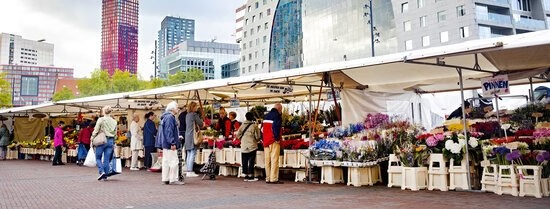Our country has large social and economic disparities and these disparities are not getting smaller. The Social and Cultural Planning Office (SCP) states this in its report 'Eigentijdse Ongelijkheid' (meaning: Contemporary Inequality). The differences are not only due to possessions, but also to education, beauty, knowledge and network. EUR sociologists Gijs Custers and Jeroen van der Waal interpret the report from their expertise in Dutch newspapers Trouw and NRC, respectively.
Underclass feels poorer than before
According to the SCP report, there are now seven classes in the Netherlands. The two bottom classes have not necessarily become poorer in recent years, but that is how these people feel. They are struggling financially, are the unhealthiest and have faith in politicians the least. According to Custers, this feeling is partly because public debate often thinks in terms of a dichotomy: rich and poor, urban and rural, the divide. "The SCP signals that it is more complicated. Hopefully there will also be an analysis of where this inequality comes from."
The report looks at economic, cultural, social and personal capital. In it, the working 'upper class' scores well on all aspects.
"Above all, we should not forget that these factors are all intertwined," says Custers, assistant professor at Erasmus School of Law. "When someone has cultural capital, they are more likely to have economic capital. This whole picture shows the complexity of the structural distribution in our society."
Impact on elections
"Highly educated people call the shots in our society," explains Jeroen van der Waal, professor of sociology. "As a result, the practically educated feel a cultural distance from politicians, judges and scientists - who embody the formal institutions."
According to Van der Waal, economic motives form only a small component in voting behaviour. "Part of the SP and VVD voters (two Dutch political parties) can be explained from the self-interest of the poorest and richest, but that perceived cultural distance is much more important."
According to Van der Waal, the fact that these elections revolve around mainly cultural struggles, around issues such as migration or climate, demonstrates precisely this dichotomy between the theoretically educated and the practically educated. "Across the Netherlands, flags were hanging upside down. These are not all people who oppose the nitrogen issue based on economic interests. There's a group of Dutch people who can identify more with politician Caroline van der Plas' way of speaking than that of politician Sigrid Kaag."

